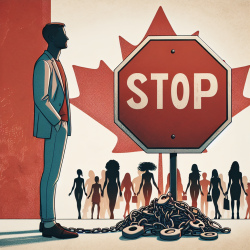As a practitioner in the field of psychotherapy, it's essential to continually evolve and adapt to the changing landscape of mental health services. One significant shift that has taken place, particularly due to the COVID-19 pandemic, is the move from in-person to online therapy sessions. While this transition has brought about numerous benefits, such as increased accessibility and convenience, it has also led to the absence of a critical element in the therapeutic process: the journey to therapy sessions.
The research article "Experience of the Absence of the Journey to Sessions in Clients' Narratives About Online Psychotherapy" by Galasinski, Ziólkowska, and Witkowicz, delves into the importance of this journey and how its absence impacts clients. The study reveals that the journey to therapy sessions is not merely travel time but a meaningful activity that aids in the therapeutic process.
According to the research, the journey to therapy sessions serves several purposes:
- Reflection and Preparation: Clients use this time to reflect on their thoughts and emotions, mentally preparing for the session ahead.
- Transition: The journey acts as a transitional phase, helping clients shift from their daily lives to a therapeutic mindset.
- Active Engagement: Clients actively engage in the process of sorting out their thoughts, which contributes to a sense of agency and control.
In the absence of this journey, clients reported feeling a void and struggled to find alternative ways to prepare for their sessions. The study suggests that practitioners can help clients by encouraging them to create new rituals that mimic the journey's benefits. Here are some practical tips to implement these findings in your practice:
- Encourage Pre-Session Rituals: Suggest that clients establish a routine before their online sessions, such as taking a walk, journaling, or engaging in mindfulness exercises.
- Create a Dedicated Space: Advise clients to set up a specific area in their home for therapy sessions, free from distractions, to help them mentally transition into the therapeutic space.
- Emphasize Reflection Time: Encourage clients to take a few minutes before and after sessions to reflect on their thoughts and feelings, replicating the reflective time during their journey to therapy.
Implementing these strategies can help bridge the gap created by the absence of the physical journey, enhancing the effectiveness of online therapy sessions. As practitioners, it's crucial to stay informed about such research and continuously seek ways to improve our therapeutic practices.
To read the original research paper, please follow this link: Experience of the Absence of the Journey to Sessions in Clients' Narratives About Online Psychotherapy










